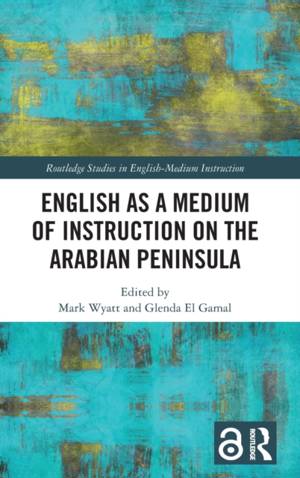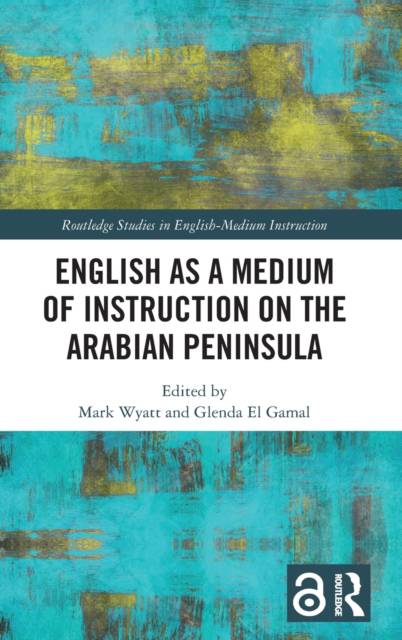
- Retrait gratuit dans votre magasin Club
- 7.000.000 titres dans notre catalogue
- Payer en toute sécurité
- Toujours un magasin près de chez vous
- Retrait gratuit dans votre magasin Club
- 7.000.000 titres dans notre catalogue
- Payer en toute sécurité
- Toujours un magasin près de chez vous
English as a Medium of Instruction on the Arabian Peninsula
Description
Focusing on English as a Medium of Instruction (EMI) in the Arab Gulf states, the authors consider both sociolinguistic and pedagogical perspectives, and explore practical implications.
This edited volume features chapters covering how teachers are negotiating the linguistic challenges posed by EMI; issues of ownership, choice and agency; the scaffolding of academic literacies; how to support the development of content teachers' pedagogical content knowledge in EMI settings as well as the benefits of a bilingual education. Chapter authors all have extensive local experience that they draw upon reflectively in their writing. Policy-makers, teachers and teacher educators wondering how they can best balance the need to develop competence in English in students of all ages on the Arabian Peninsula in a globalizing world, together with the concern to nurture Arabic language, culture and identity, will gain rich insights from this book.
Postgraduates and researchers exploring issues surrounding EMI, both locally and internationally, will benefit from the arguments presented in this volume.
Spécifications
Parties prenantes
- Editeur:
Contenu
- Nombre de pages :
- 244
- Langue:
- Anglais
- Collection :
Caractéristiques
- EAN:
- 9781032024936
- Date de parution :
- 15-03-23
- Format:
- Livre relié
- Format numérique:
- Genaaid
- Dimensions :
- 156 mm x 234 mm
- Poids :
- 539 g






